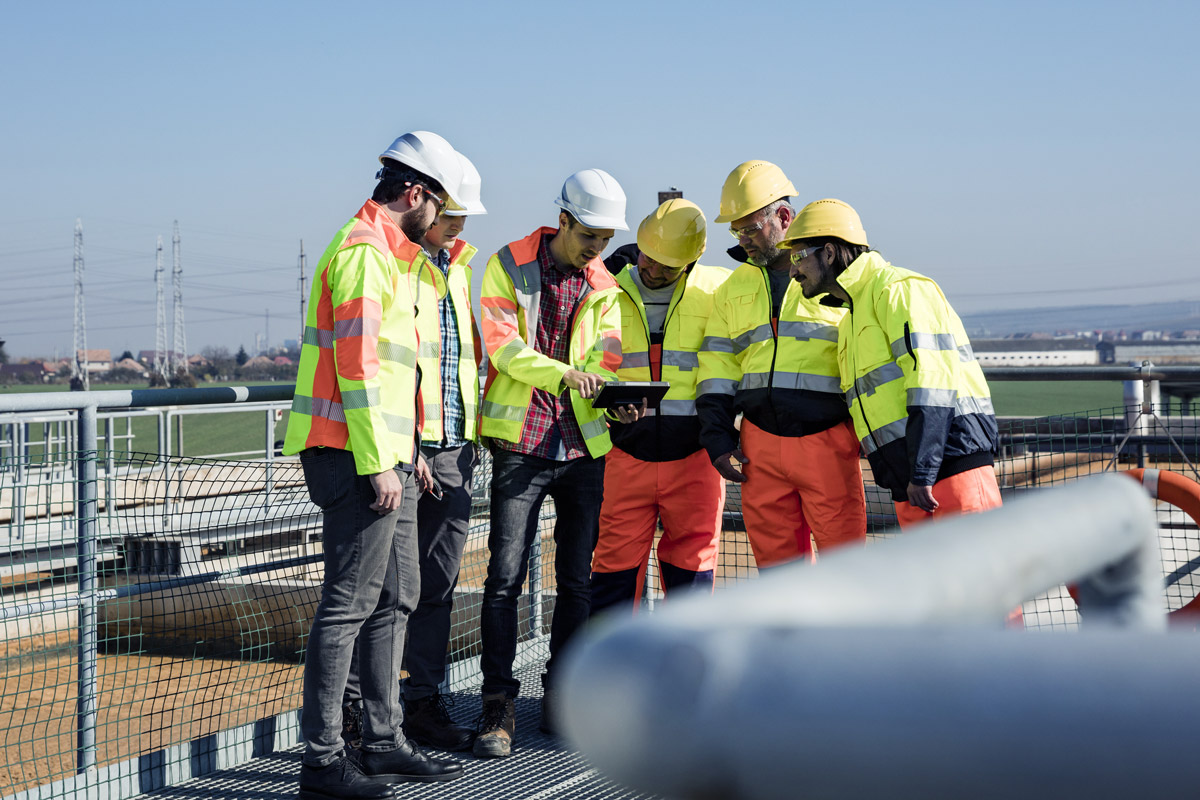Water is the most important element of life – the technology for the provision of water and the treatment of wastewater is of corresponding importance.

Technology for the provision of clean drinking water, for the supply of water for agricultural and industrial processes, and for the treatment of municipal as well as industrial wastewater: corresponding technologies make an immense contribution to a secure water supply.
Per inhabitant connected to the sewage network, approx. 35 kWh of electricity is required annually, which corresponds to approx. 2 – 3 % of the average electricity consumption (approx. 1,500 kWh per year).
Yes, because the sewage sludge in the septic tanks of wastewater treatment plants contains microorganisms that produce, among other things, methane-containing digester gas that can be used to generate electricity. The higher the proportion of organic substances such as fats, the more intensive the gas generation and the higher the electricity yield. Another possibility is wastewater heat recovery. Here, the thermal energy of the residual heat present in the wastewater is made usable as heating energy via heat exchangers and pumps.
By establishing energy management systems in the field of water and wastewater technology, the economic efficiency of energy use and energy generation can be monitored, controlled and improved. The goals here are to reduce energy consumption and increase the company’s own electricity production.
Basically, four processes are distinguished: mechanical processes (screening, filtration, sedimentation), physical processes (flotation, evaporation, membrane, ultrafiltration, nanofiltration, reverse osmosis, adsorption, oil separation), chemical-physical processes (neutralization, precipitation, flocculation, emulsion splitting, coagulation, oxidation, reduction, ion exchange) and biological processes (aerobic and anaerobic biological treatment, nitrification and denitrification).
Do not hesitate to contact us, we will be happy to advise you individually.
Contact Us